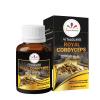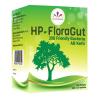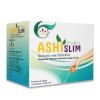 As people now live longer than previous generations, the idea of the “elderly” has changed considerably. If they have consumed a well-balanced diet throughout their lives, then older people may find that they are less at risk of certain cancers and coronary heart disease as well as finding that there is less age-related damage to their brains, eyes, muscles and bones.
As people now live longer than previous generations, the idea of the “elderly” has changed considerably. If they have consumed a well-balanced diet throughout their lives, then older people may find that they are less at risk of certain cancers and coronary heart disease as well as finding that there is less age-related damage to their brains, eyes, muscles and bones.
It may be that older people need to supplement their diets with some vitamins and minerals as they may be eating less and their digestive system may not work as efficiently as they did when they were younger.
Nevertheless, as we get older, we will find that unless we start to consume less, we will put on weight. This is due to a number of reasons. Firstly, it is likely that as we age we become less active after retirement. As we age, we also lose lean muscles and this reduces our resting metabolic rate which is the rate our body burns energy. Therefore, we need less energy and need to consume less calories.
As a general rule, between the ages of 65 and 74, men should reduce their calorie intake by approximately 230 calories per day. For women, the reduction is about 90 calories per day.
Dehydration can become a problem for elderly people as they tend to consume insufficient quantities of water. This may be to avoid the numerous trips to the toilet! It is essential that elderly people keep their fluid levels topped up as dehydration can lead to confusion. Potassium is also an important nutrient. Good sources of potassium are bananas, beans, dark leafy greens, potatoes, avocado and mushrooms.
As much as possible, an elderly person’s daily diet should be balance and lower in calories. This can include servings of brown rice, bread, potatoes, meat fish, eggs, cheese, milk and various portions of fruits like banana and dark leafy greens.











Facebook Comments